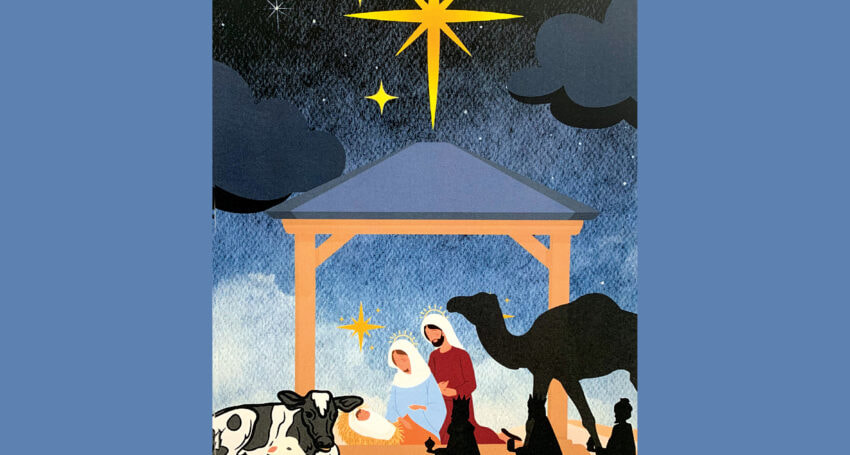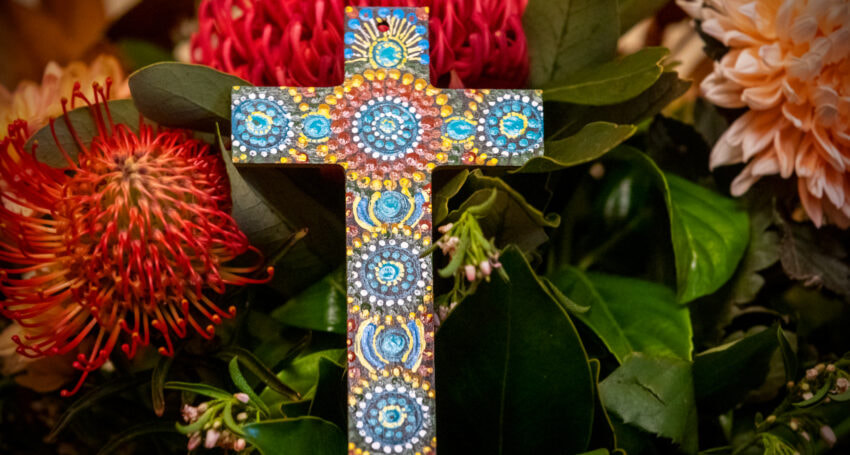|
By Lauren Bierer As we have been propelled into a digital world over the past 3 decades, many churches around the globe have had to face the debate of screens or no screens. It is a challenging balance to maintain reverence in a place of worship, display hospitality to newcomers by helping the congregation with responses and being able to embrace the introduction of new liturgical music and not be bound to an aging hymnal in the pew. There are valid pros and cons for the use of screens and other worship aids.
In our Diocese here in Adelaide, you may find a church that is using hymnals printed over 40 years ago, which would mean the hymns Open My Eyes, Lord by Jesse Manibusan and Bernadette Farrell’s Christ Be Our Light hadn’t even been written yet. The barrier to updating church hymnals is usually a financial one and we find liturgical music feeling stale if a community has to use the same worship aid for this long. In contrast, another church is using screens and projecting lyrics for a song that was written last year and many Parishes are handing out the Parish newsletter before Mass with the Liturgy of the Word printed in it for people to follow. Their intention is to clearly communicate and increase the potential for participation but it can sometimes be a distraction.
0 Comments
By Simone Brosig Recently I was introduced to the resource centre at Catholic Education, the Catholic Resource and Information Service (CRIS). I picked out one book to take for research towards a workshop. After looking at some others, I exclaimed how many great items there were! The problem is, I’d have to actually read the books.
When it comes to learning or faith formation, the spirit is willing, but the flesh is weak (Matthew 26.41). We often want to learn and grow in faith, but formal study takes the time, focus, and means that we may not have. Just as we could use an app to learn a new language in five minutes a day or might improve our health and fitness by taking the stairs instead of the lift, the Catholic tradition offers us a process that we can use to reach our goals almost effortlessly! It’s called ‘mystagogical reflection’. By Orla Wright Mother’s Day, which is celebrated on the second Sunday of May, can evoke a strong and complex range of emotions. For many it’s a day of breakfast in bed, homemade cards, and flowers; a day when family members get together to honour the matriarch of the clan. It’s a day many mothers receive tokens of gratitude in recognition of the love, care and sacrifices they make every day.
However for others, this day can evoke pain: those seeing the empty chair where their mother used to sit, the empty crib of infertility, miscarriage, or the loss of a child. We also need to acknowledge that not all mother/child relationships are joyous. For some, Mother’s Day is a stark reminder of the strain in relationships that sometimes can never be healed. By Lauren Bierer Over recent months I’ve found myself pondering the innate human longing for connection. Whether at school, work, the gym or within our own families, there’s a deep-seated desire for a place where we can authentically express ourselves without reservation. We seek out events and gatherings where we can unite over shared interests, be it music, sports, or other common passions, finding solace and connection within the crowd.
Brené Brown, a renowned researcher and author, says in her book, Daring Greatly, that connection is the reason we’re here. She writes that we are ‘hardwired to connect with others, it’s what gives purpose and meaning to our lives, and without it, there is suffering.’ By Simone Brosig As Christians, it is our lifelong responsibility to strive to conform ourselves to Christ. The Church gives us the period of Lent as a time to concentrate more seriously on the practices that lead us to grow in discipleship and advance in the spiritual life.
1. Give up sin This is straightforward; if it’s wrong, don’t do it! Discipline in the small things makes us strong for when we face bigger challenges. This is a time to clear up the seemingly inconsequential but sinful habits that have crept into your life – the white lies, taking things nobody will notice, overindulging and spreading gossip. 2. Pray Prayer is a conversation that requires both speaking and listening. If you tend to talk more than you listen, try silent meditation or adoration. If you get distracted on your own, join the community for daily Mass or join a prayer or bible study group. Do you find yourself at a loss for words when it comes to prayer? Try memorisation – a Psalm or one of the Gospel canticles from the Liturgy of the Hours makes a scriptural prayer available to you at any time. By Orla Wright With the approach of Good Friday, on which day we recall that our Saviour was nailed to the Cross, I felt it was my failings and sinfulness that caused Jesus’ crucifixion. Already at seven years of age, I was weighed down by guilt and a feeling of unworthiness. It took an adult understanding of the faith to realise that I am worthy of life and love, not by anything that I have done, but by the sacrifice made by Christ on my behalf and on behalf of all humanity. The complement to our mourning is gratitude; much is expected from us on account of how much God has given us! We give of ourselves out of what we have received from the Lord.
By Simone Brosig While the secular Christmas season began in early November, the liturgical Christmas season doesn’t begin until the evening on December 24. One way you can extend the liturgical Christmas season into your domestic life is with the blessing of your home.
The ritual of blessing homes is connected to the Solemnity of the Epiphany that falls in Christmas season. Epiphany means ‘manifestation’, that moment when we suddenly understand something that previously was hidden. Three mysteries mark this holy day:
By Simone Brosig The ministry known and loved for many years as the Office of Worship in the Archdiocese of Adelaide has been renamed Community Life and Worship.
The support people in our parishes, schools and communities have been accustomed to receive will still be available. The difference is that we have an explicit mandate to integrate liturgy and community life. The Constitution on the Sacred Liturgy described the liturgy as the summit and font of the Church. There is a constant flow of nourishment and power moving from the liturgy to the life of the community and back again to the celebration of the Eucharist. Our newly expanded team aims to provide accessible training and resources that will help people to implement practices that strengthen this relationship of mutuality between worship and community life. |
|
Catholic Archdiocese of Adelaide
|








